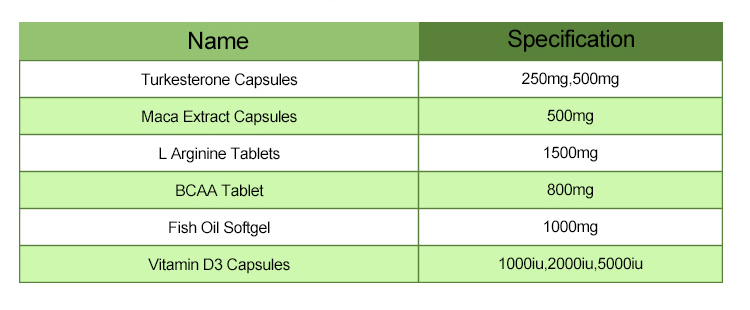Vitamin D3 capsules are a form of dietary supplement containing vitamin D3, which is a fat-soluble vitamin that plays a crucial role in several bodily functions. Also known as cholecalciferol, vitamin D3 is naturally produced in the skin when exposed to sunlight. However, many people may not get enough sunlight exposure, especially in regions with limited sunlight or during certain seasons, which can lead to vitamin D deficiency.
Vitamin D3 is important for various bodily functions, including:
Bone Health: It helps in the absorption of calcium and phosphorus, which are essential for maintaining strong and healthy bones. Vitamin D deficiency can lead to conditions like rickets in children and osteomalacia or osteoporosis in adults.
Immune Function: Vitamin D plays a role in modulating the immune system, helping the body defend against infections and diseases.
Muscle Function: It is also involved in muscle function and may help reduce the risk of falls, especially in older adults.
Mood Regulation: Some research suggests that vitamin D may play a role in regulating mood and reducing the risk of depression.

Vitamin D3 supplements are commonly recommended for individuals who have low levels of vitamin D or are at risk of deficiency. They are available in various forms, including capsules, tablets, and softgels. The dosage of vitamin D3 supplements may vary depending on factors such as age, health status, and the presence of any medical conditions. It’s important to follow the dosage recommendations provided by healthcare professionals and to avoid exceeding the recommended intake, as excessive vitamin D intake can lead to toxicity.
How to use Vitamin D3 Capsules?
Using Vitamin D3 capsules is relatively straightforward. Here’s a general guide on how to use them:
Read the Label: Start by reading the label on the bottle of your Vitamin D3 capsules. This will provide important information regarding dosage, serving size, and any specific instructions from the manufacturer.
Dosage: Determine the appropriate dosage for your needs. The recommended daily allowance (RDA) for Vitamin D varies depending on factors such as age, sex, and health status. Consult with a healthcare professional to determine the right dosage for you.
Administration: Take the capsule with a glass of water or as directed on the label. Most Vitamin D3 capsules are intended for oral consumption and can be taken with or without food.
Timing: Some people prefer to take their Vitamin D supplements with a meal to enhance absorption, particularly if the meal contains healthy fats. However, this isn’t strictly necessary.
Consistency: To maintain optimal levels of Vitamin D in your body, it’s important to take the supplement regularly as directed. Consistency is key to experiencing the benefits of supplementation.
Monitoring: Periodically monitor your Vitamin D levels, especially if you have certain health conditions or are taking other medications that may affect absorption or metabolism. Your healthcare provider can help you interpret test results and adjust your supplementation if necessary.

Caution: While Vitamin D is generally considered safe when taken within recommended doses, excessive intake can lead to toxicity. Avoid exceeding the recommended dosage unless specifically advised by a healthcare professional.
Storage: Store your Vitamin D3 capsules according to the instructions on the label. Typically, this means keeping them in a cool, dry place away from direct sunlight.
Consult a Healthcare Professional: If you have any questions or concerns about using Vitamin D3 capsules, it’s always best to consult with a healthcare professional, such as a doctor or pharmacist.
Remember that while supplements like Vitamin D3 can be beneficial, they are not a substitute for a healthy diet and lifestyle. It’s essential to maintain a balanced diet and get regular exposure to sunlight to support overall health and well-being.
